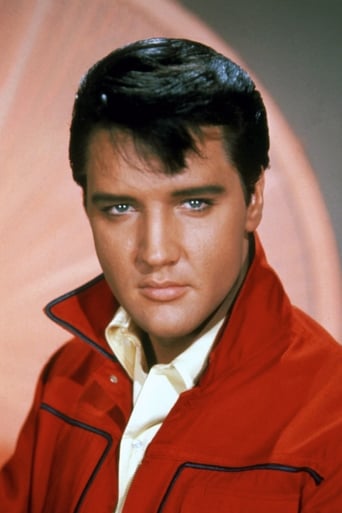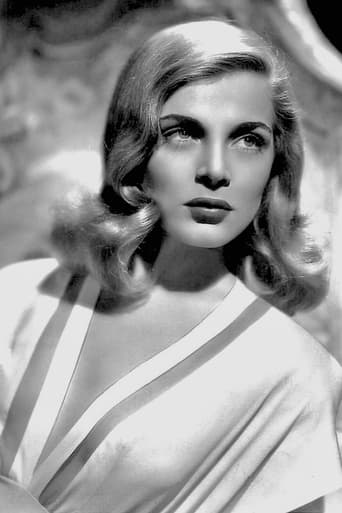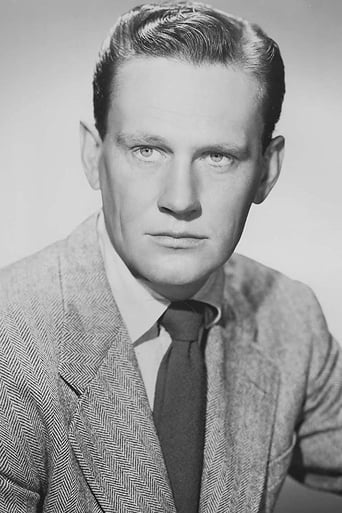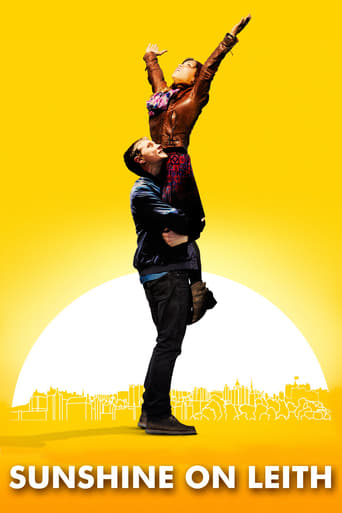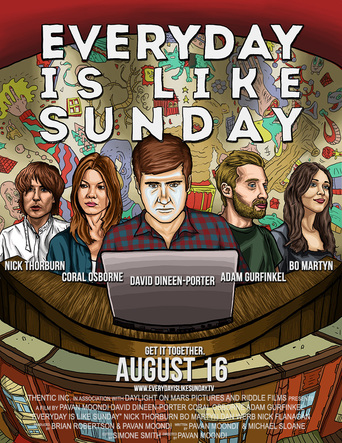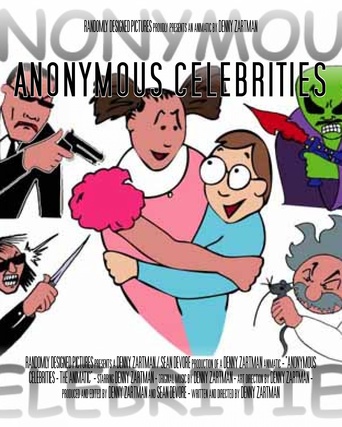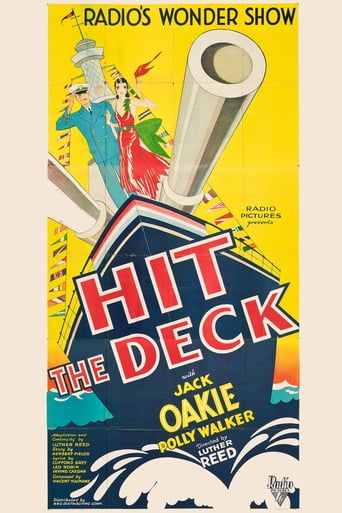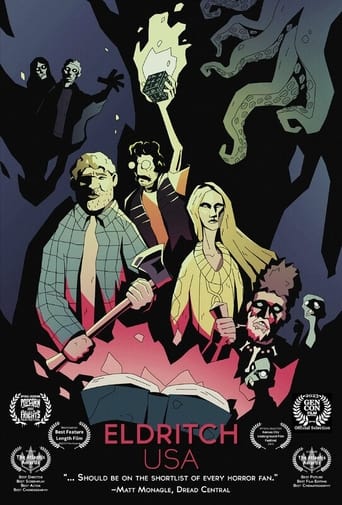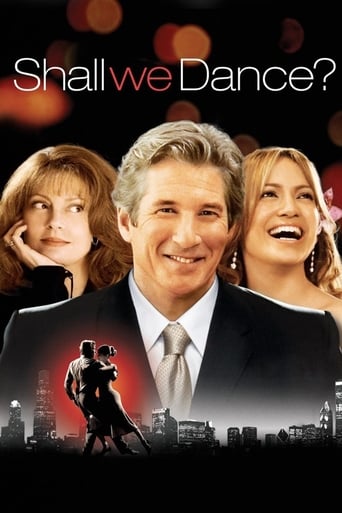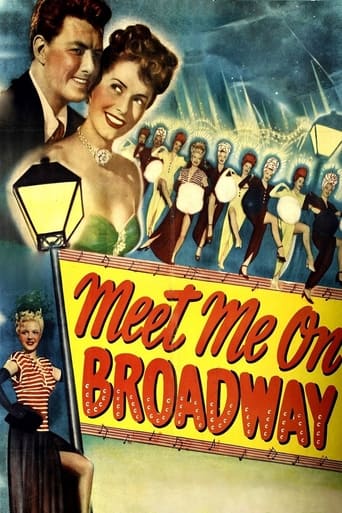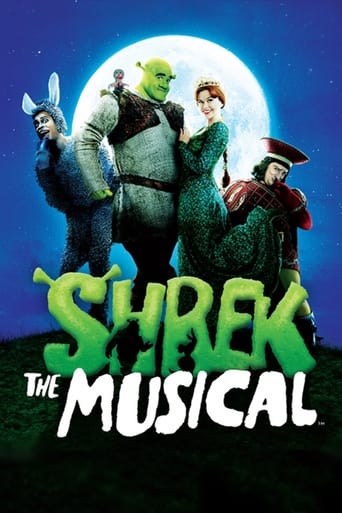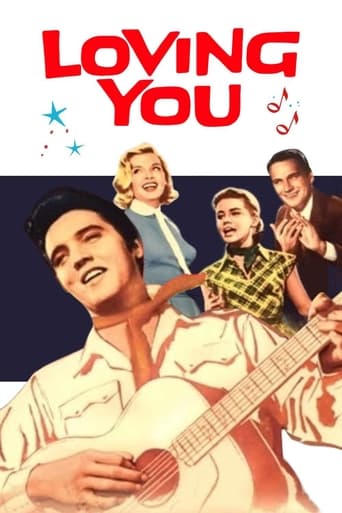
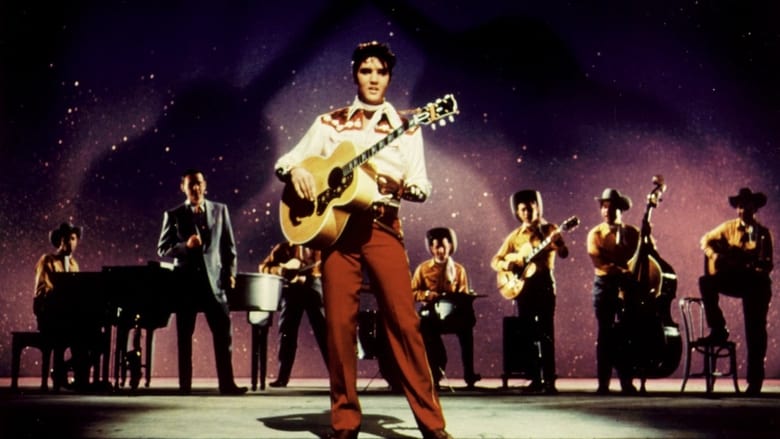
Loving You (1957)
Deke Rivers is a delivery man who is discovered by publicist Glenda Markle and country-western musician Tex Warner who want to promote the talented newcomer to fame and fortune, giving him every break he deserves. Romantic complications arise as Susan, another singer in the group, offers him devoted admiration as Glenda leads him on with promises of a golden future.
Watch Trailer
Cast
Similar titles
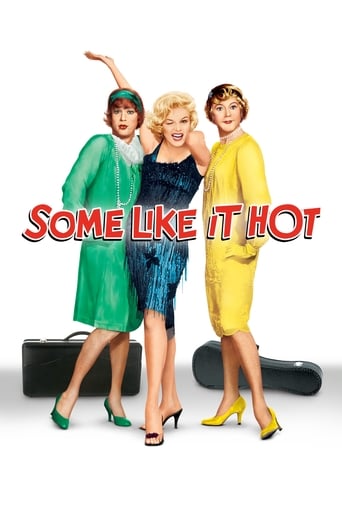
Reviews
Very very predictable, including the post credit scene !!!
Why so much hype?
That was an excellent one.
I cannot think of one single thing that I would change about this film. The acting is incomparable, the directing deft, and the writing poignantly brilliant.
In honor of The King of Rock 'n' Roll's untimely death nearly 30 years ago, I've decided to check out some of his movies like this second one he made called Loving You. In this one, he plays Deke Rivers who was just making some deliveries when a woman (Lizabeth Scott) inquires if there's a singer around. Guess who gets picked! Along the way, Deke meets her bandleader ex-husband (Wendell Corey) and the female vocalist (Dolores Hart). The movie follows the road tours that lead to some big breaks despite some troubles with some teenage girls and their jealous boyfriends looking for a fight. Elvis shows great charisma throughout and has smoldering chemistry with Ms. Scott and a charmingly sincere one with Ms. Hart. It threatens to get corny at the end with a happy ending for all but it plays very believably for the more innocent time that it was filmed in. Certainly Loving You is more preferable to some of the more sillier movies he made in the 60s. Great songs like the title one and "Teddy Bear" abound. Look for Presley's parents, Gladys and Vernon, in the finale.
How cruel the critics have been to Presley's films, with the exception of 'Jailhouse Rock', whose monochrome mordancy is more to their liking than the candy-colored 'Loving You'. Yet arguably the latter presents the century's greatest vocal magus more truly, at least when he was young, green and disturbing teenagers' parents.It is not without hints of the temptations that would turn him into a tragic, bloated self-parody. But it gives all due credit to his electrifying stage presence, his modesty and ineffable, courtly charm when a novice idol. You do not feel, as so often in his later programmers, the contempt of the old men jerking the strings for their moneymaking puppet.Plotwise, 'Loving You' is little but a sanitised bio. The delivery boy is discovered, at a political rally of all places. He slowly builds a following in venues such as the Haroldsville Lions Club and the Alkali Wells Stock Fair. He is groomed for bigger things by a Svengali (but a husky-voiced female, not a Dutch illegal immigrant with a bogus military rank) and he learns a few lessons about life and love as the fans scream louder and louder.So far so obvious. The craft is in the detail. Hal Kanter, who came from Elvis's neck of the woods, writes and directs with an eye to the folksy, C&W background of Deke Rivers's troubled youth: the title song is first performed, not in a theatre full of squealing teenyboppers, but al fresco in front of a farmer's family, with chickens scratching behind our troubadour. Deke's main squeeze (Hart) is a sweet pony-tailed innocent, not the wiggling little swimsuited strumpets of the later "travelogues"; Scott and Corey are an on/off showbiz couple with one eye to exploiting their find but another to treating him honourably. There are no real baddies, only hooligans in the diner and bluenosed ladies in Freegate, Texas, readily convertible to Deke's music. Elvis uses his fists only to defend Corey; and he only gets into a big clinch with Hart in the last shot.The simplicity of this film has kept it fresh. There are topical gags about flying saucers, De Mille's "Ten Commandments" (a favourite of the King) and the Freegate finale mirrors the concocted fuss about Elvis's gyrations on Ed Sullivan's show; but the period elements do not obtrude. Even the clothes-- Elvis's denims, Hart's blouse and skirt-- don't look nearly as dated as punk or Goth clobber.The picture is aimed at a wide audience, lacking the silly juvenile-delinquent posturing that Elvis was made to do later to grab the teens. Since the story makes him an orphan, he has no familial bonds to struggle against- rather he longs for the home he never had, and his mistaking Corey and Scott for surrogate parents (while she is tempted to be more than maternal or managerial) is the tale of his relationship with them. Elvis eventually plays matchmaker like Shirley Temple or Deanna Durbin before they were old enough to have their own sex lives on screen.It must have been agony, in 1957 and more than ever soon afterwards, for the mother-fixated Elvis to utter such lines as "My mother's dead" or be told by Scott that "It's time you realised that Momma is never going to come!" During the shooting Vernon and Gladys Presley were summoned to Hollywood, the only long trip they ever took together; they can be seen in the audience in the last scene, and when Elvis comes jiving down the aisle Gladys is among the older "converts" clapping along. She died soon after, and he never watched the film again.Presley was lucky that he commenced actor just as the Method was hitting its height of popularity among younger Hollywood denizens: his tendency to mumble, wriggle and stutter seems less out of place than ten years earlier or later. He begins playing every scene with his head hanging or averted, as if mortally abashed; later he grows a bit more confident and relaxed, but this suits the character's evolution. His rough edges as an actor only make one root for him; he projects likability.It was Elvis's real movie debut ('Love Me Tender' was a rushed, botched job) and a fair sign of what his stock in trade would be. But for Scott, producer Hal Wallis's girlfriend, it was the end of the road: her career was wrecked by 'Confidential' magazine's innuendoes. Shame- she might have blossomed int another Joan Blondell. That infamous rag also smeared Dolores Hart, who reacted rather drastically by taking the veil, though she still has a vote in the Oscars. Kanter returned to Colonel Parker's circus to write, alas, 'Blue Hawaii': Elvis's post-Army induction into the legion of inoffensive entertainers.
Music wise you cant ask for better, and Elvis: acting is getting better, the dialogue is a bit corny in places but hey! this is 1957, what do ya expect, Lizabeth Scot , Wendel Corey especially Wendel Corey, this is Elvis; film but Corey steels the movie with his constant wise cracks and one liners, such as (Hey dog, you wanna go to longhorn with me?) and at the end (Lady maam, just call me Tex) I go into fits of laughter every time he says it, Wendel Corey was in The Rainmaker a year earlier, he was good, incidentally Elvis screen tested for that movie too, course he lost out but hey ya cant win em all! incidentally, guys i hope this isn't a spoiler more like a goof that was cleared up before the movie came out, in the Teddybear sequence its been said that it took 28 takes for Elvis to get it right!sign slapstck2000
This was Elvis Presley's second film, and the first to be filmed in gorgeous Technicolor. Elvis plays a delivery boy called Deke Rivers, and when a very persistent press agent (Lizabeth Scott) hears him singing, she convinces him to join her ex-husband's small traveling musical entourage, gradually promoting him into a huge sensation. First playing small town gigs and then advancing onward into bigger city shows, Rivers eventually becomes the lead act of the modest group and a popular star in his own right. This movie feels close in spirit to the true story of Presley's own career beginnings, and he gives a pretty decent performance which includes a terrific down and dirty fight scene. The songs are all well chosen and incorporated into the story this time out, beginning with the title ballad and then the hit song "Teddy Bear". The soundtrack benefits too from some heavier rockers like "Mean Woman Blues", "Got a Lot O' Livin To Do", "Hot Dog", and "Party". Truthfully, I can't usually take much of Lizabeth Scott in general, but she's well cast here as the older and very tactical manager, and there's an interestingly offbeat side relationship between Scott and her ex (Wendell Corey). Not a great film, and I do think it could have worked even better if about 15 minutes were clipped, but this is still good, solid, early vintage Elvis before the same tired movie formula became a little too routine. *** out of ****
